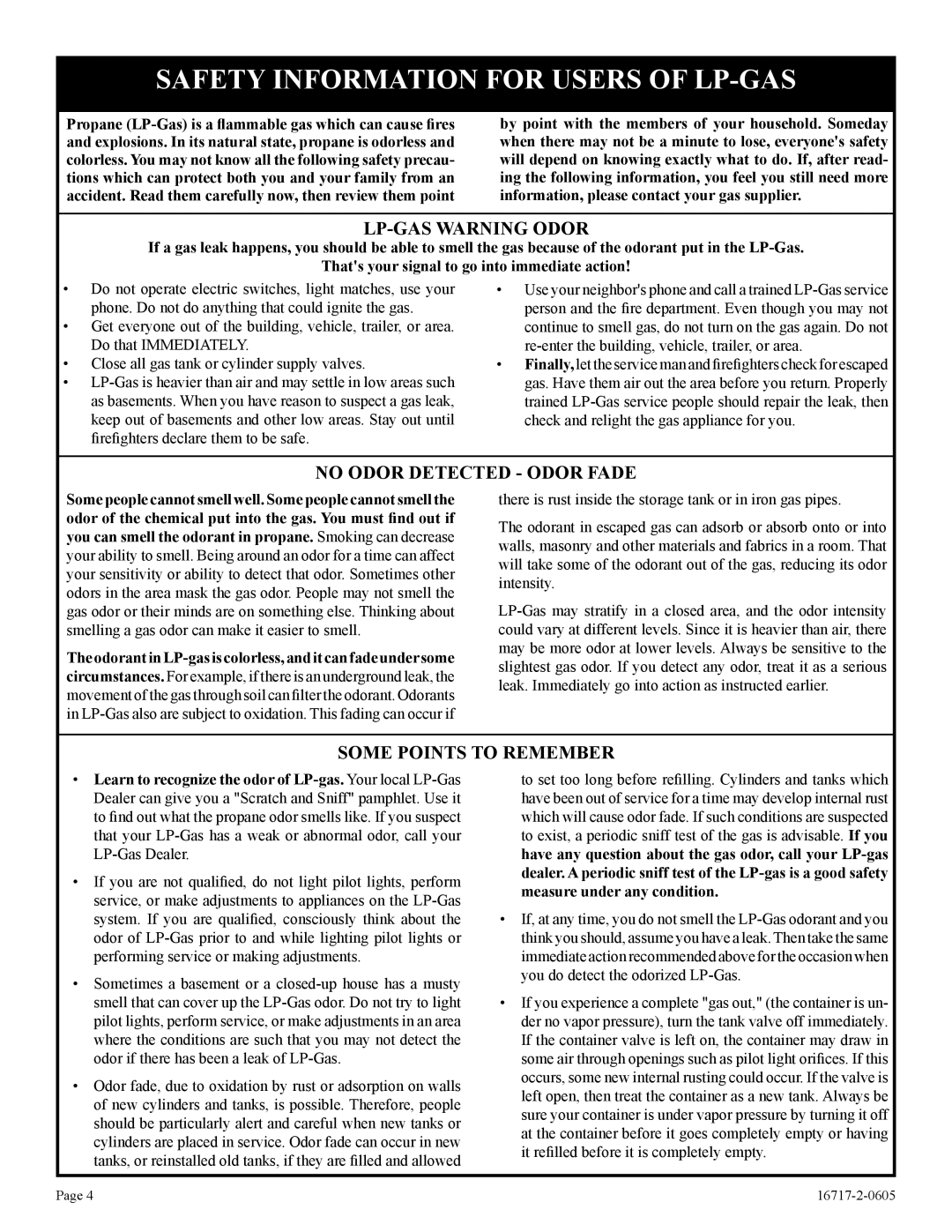VFHS-20R-4, VFHS-20/10T-4 specifications
Empire Comfort Systems has consistently been a frontrunner in the heating industry, and their VFHS-20R-4 and VFHS-20/10T-4 models are prime examples of their commitment to quality and innovation. Designed for efficient and effective heating solutions, these units offer unique features that cater to diverse customer needs.The VFHS-20R-4 is part of Empire's versatile vent-free heater line, providing an impressive output of 20,000 BTUs. Its design allows for flexible installation options, making it ideal for both residential and commercial applications. One of the standout features of the VFHS-20R-4 is its advanced heating technology, which utilizes radiant heat to warm your space quickly and efficiently. This method not only provides powerful heat but also enhances comfort by distributing warmth evenly.
Furthermore, the VFHS-20R-4 includes a built-in safety pilot system that ensures safe operation. This technology detects any malfunctions and automatically shuts the unit off if necessary, providing peace of mind for users. Additionally, the unit's thermostatic control allows for easy temperature management and helps maintain an energy-efficient environment.
On the other hand, the VFHS-20/10T-4 model is tailored for areas requiring a dual heating approach. This innovative unit combines both vent-free and vented heating options, offering flexibility based on user preferences or regulatory requirements. With a heat output of 20,000 BTUs, it delivers ample warmth while also featuring a compact design that seamlessly fits into various spaces.
Both models boast a sleek and modern aesthetic, ensuring they complement any decor. They are available in multiple finishes, allowing users to choose the one that best suits their style. The ease of installation is another significant advantage, with straightforward instructions enabling users to set up the units with minimal hassle.
In terms of energy efficiency, both the VFHS-20R-4 and VFHS-20/10T-4 are equipped with technologies that minimize energy consumption while maximizing heat output. Their environmentally friendly design helps reduce emissions, making them suitable options for eco-conscious consumers.
In conclusion, the Empire Comfort Systems VFHS-20R-4 and VFHS-20/10T-4 models represent the pinnacle of heating technology. With their efficient features, safety enhancements, and stylish designs, they stand out as excellent choices for anyone seeking reliable and effective heating solutions in their living or working spaces. Whether you need a versatile heating option or a dual-function solution, Empire Comfort Systems delivers with these remarkable models.

